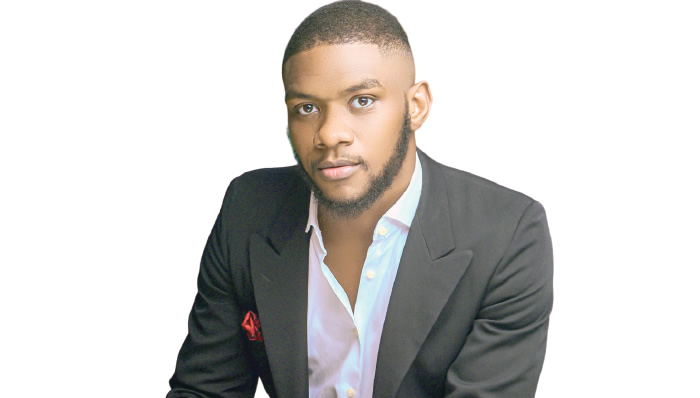
Destiny Ogedegbe, a first-class graduate of Law from the University of Benin, and the Nigerian Law School, recently graduated from the Harvard Law School. He tells JOSEPHINE OGUNDEJI about his career and other issues
What was childhood like for you?
Taking it from an academic standpoint, childhood was very normal for me, considering where I grew up. I grew up in Benin City, Edo State, and at the time in the mid-90s and 2000s, I was just like every other kid that went to schools their parents could afford. I just scaled from one stage to the other, having two promotions at the time. However, the more important aspect of my upbringing was where I grew up and the circumstances of my growing up, which was difficult.
My mum, at the time, used to hawk food across the street, and we, her children, would wake up very early to help her cook. Hence, it was very difficult. There were times when my mum would tell me and my siblings to go to the village to help our grandmother, which was not unusual, because there were other kids subjected to that treatment in that environment. However, the part of Benin City I grew up is one of the worst places to grow up in.
In summary, I had a pretty challenging upbringing, based on the fact that I grew up on the outskirts of Benin City. Many times, we had to feed from hand to mouth. But at the same time, it was fun. I had friends to play football with and run menial errands with.
What would you want to be known for?
On a very personal level, I would want to use my artistic talent in writing to influence communities, particularly similar communities like where I grew up. I want to write books that would inspire and transform the way young people reason and think of their own lives; books that would serve as a bridge between where these young ones presently are and the future they envisage for themselves.
Also, I would love to be known as an educator, because at some point, I would love to go back to academia to teach. I am very passionate about impact within certain demographics, especially those from underprivileged backgrounds, and demonstrate to them the acute power of the mind, and the transformative power of imagination.
In addition, I would like to become a brilliant and sought-after international lawyer.
What does success mean to you?
I define success on an incremental basis. For me, success is about getting better at the things I love; not just at the things I do.
How would you describe your journey at Harvard Law School?
There are simply no words to explain what the experience has been so far, because it has been nothing short of amazing. This is where I have met the most intelligent people and sharpest minds in my life. It has been very inspiring and makes me feel very worthy. At the same time, it is also very humbling, because it becomes glaring that just as one has strengths, one also has limitations that are glaring to one and other people, and vice-versa. The experience has given me a balanced idea of my strengths and weaknesses. By weakness, I do not mean intellectually, but constraints in terms of relative success, hence it has made me more aware of those limitations. I am trying to ensure that when I begin having kids and starting my family, I am able to give them certain things that do not place certain limitations on them, so that they can compete favourably and meaningfully with their contemporaries.
Harvard is rated as one of the best educational institutions in the world with outstanding alumni. Did you feel under any sort of pressure to do well and make your mark as a student of the institution?
I think I have made my mark, and have done really well for myself. I have also projected myself as a top leader in the institution, which is a big deal for me.
In what ways did being a student of the Harvard Law School grow your mindset?
One can be very brilliant. However, when one passes through the academic rigours and experience brilliant minds here, that humbles one in a very good way. It gives one a sort of poise that is borne out of adversity, rendering one incapable of exaggeration, and giving one a talent for understatement. It also deepens the awareness of who one is and what one carries. It is like a balance that births humility, because one realises that the way one sees the world is not the only way to see it. It also shows one that one is not the only intelligent person in the world, thus one has to learn to listen, be more accepting of contrary opinions and be more open to reviewing one’s own perspectives, submit to superior arguments, and confidently assert one’s position because one’s views are just as valid.
How did you feel after being nominated among the ‘Global Top 100 Most Influential People of African Descent?
I felt humbled by it. Most importantly, I felt very inspired to continue doing things that inspire people. It also gave me the feeling that we all have our primary places in this world, and we should be able to do things that make our souls feel alive. It gave me the encouragement that if I continued to do certain things, such as share knowledge and teaching, I would be able to inspire more people as time goes on.
You have remained consistent in blazing the trail in the legal space, both as a student and a practising lawyer. What drives you?
Most of what I did was to learn, particularly from senior colleagues. My goal was to make all the mistakes as early and quickly as possible. What pushes me to get better, not just in my profession, but even academically, is curiosity. I am an extremely curious person.
There are nights when I study things as diverse as anthropology, finance and accounting. Hence, I have a very wide base of knowledge, based on the things I know and contribute to. I don’t restrict myself to the legal perspective, but also the economic perspective, among others. I feel like the moment I focus on law alone, my intellectual prowess begins to dampen, and one will feel from time to time that one is not maximising one’s intellectual capacity enough. I always love to challenge myself, and that keeps pushing me to get better and go higher.
You were offered admission into Oxford University, United Kingdom; and Harvard, United States of America, which are both prestigious and respected institutions. Why did you decide to eventually choose Harvard over Oxford?
One of the drivers for me was the country. Harvard is in the US, which is at the heart of financial regulations. Most of what I do revolves around corporate and project finance. I just felt I would be proximal to people who would have hands-on experience to share with me. Also, the community of the institution is very broad, cutting across different countries, so it is a larger pool, both numerically and geographically, of diverse people than one would find in Oxford or Cambridge.
In an interview, you noted that after seeing your Bar result, which was the best in your school, you cried because that was just a day after you had been rejected in an interview. How do you handle rejections?
One never gets used to rejections. Even till date, many of my colleagues here (in Harvard) are still applying and getting rejected, because of the competition with the best people in the world. Also, things cannot always go one’s way, no matter how brilliant one is.
The way I handle rejection is by accepting that life comes full circle. What that means is that sometimes, one does not get it. But, the wheel would eventually spin in one’s favour.
What do you see in the future of the legal profession for you?
I know that at some point while practising law, I am going to become a partner in a law firm. However, the way I want to practise law is not to abandon other aspects of my life. I do not intend sacrificing every aspect of my life on the altar of the legal profession. Also, due to the evolving state of the world, the way I see myself practising law is that I am going to get to the top, while thriving in other aspects of my life with passion, humour and style. I want to be a wholesome person.
Who do you look up to?
I look up to any person who is living a very honest and hardworking life. Of course, I have close people and mentors that inspire me, particularly, Mr Asue Igodalo− the partner I was closest to at Banwo & Ighodalo; Mrs Stella Duru, and Professor Hakeem Belo-Osagie.
What is next for you after Harvard Law School?
The next step is to go back to practice law in a couple of months from now.




